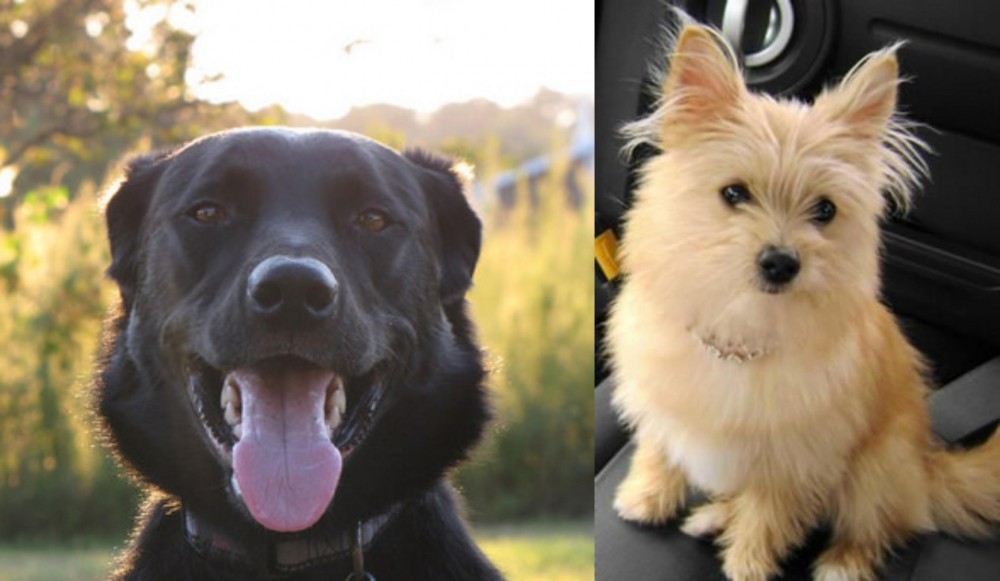 Both Borador and Yoranian are originated from United States. Borador may grow 27 cm / 11 inches higher than Yoranian. Borador may weigh 23 kg / 51 pounds more than Yoranian. Both Borador and Yoranian has almost same life span. Both Borador and Yoranian has almost same litter size. Borador requires Moderate Maintenance. But Yoranian requires Low Maintenance
Both Borador and Yoranian are originated from United States. Borador may grow 27 cm / 11 inches higher than Yoranian. Borador may weigh 23 kg / 51 pounds more than Yoranian. Both Borador and Yoranian has almost same life span. Both Borador and Yoranian has almost same litter size. Borador requires Moderate Maintenance. But Yoranian requires Low Maintenance
Basic Information
undefined
United States
United States
Life Span:
12 - 15 Years
12 - 14 Years
Other Names:
Border collie Lab mix, Border Lab mix, Collie lab mix
Yorky Pom • Yorkie Pom • Yorkie-Pom • Yorki-pom • Yorkipom • Yoranian Terrier • Porkie • Pom-Yorkie
Colors Available:
Black, black and white, beige
crcream to apricot
Coat:
short and dense or long and wavy
thin Thick, short/medium, shiny, wirehaired double coat
Shedding:
Moderate
Moderate
Temperament:
Affectionate, Alert, Cheerful, Courageous, Curious, Energetic, Friendly, Gentle, Independent, Lively, Loving, Loyal, Outgoing, Playful, Responsive, Social, Sweet
Curious, Energetic, Intelligent, Loving
Grooming:
Moderate Maintenance
Low Maintenance
New Owners Friendly:
Yes
Yes
History
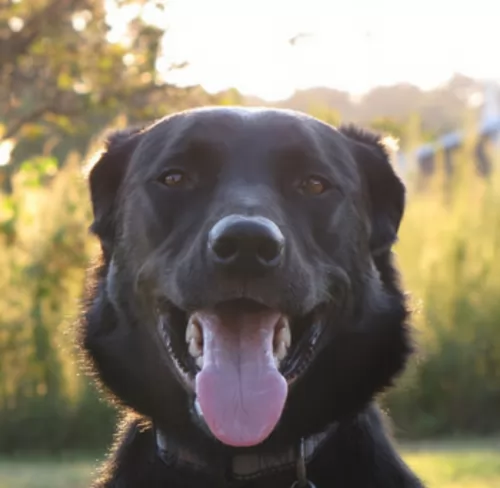 Hybrid breeds have become popular in the last decade or so. The Borador, hailing from Northern America, is one of these popular crossbreeds between two very popular dog breeds - the Border Collie and the Labrador Retriever. Between the two dog breeds, you get extraordinary intelligence, energy and a wonderful temperament.
Hybrid breeds have become popular in the last decade or so. The Borador, hailing from Northern America, is one of these popular crossbreeds between two very popular dog breeds - the Border Collie and the Labrador Retriever. Between the two dog breeds, you get extraordinary intelligence, energy and a wonderful temperament.
You first started hearing about this dog breed in the early 21st century. However each of the two breeds brought together to produce the Borador have got reasonable lengthy histories.
The Yoranian is a mixed breed, hybrid or “designer” breed. They are a cross between the Pomeranian and the Yorkshire Terrier and are very small dogs. They were developed in Yorkshire, England in the 19th century. It is a very playful, family dog that is not registered with any pure breed club such as the American Kennel Club or AKC.
Description
His Looks
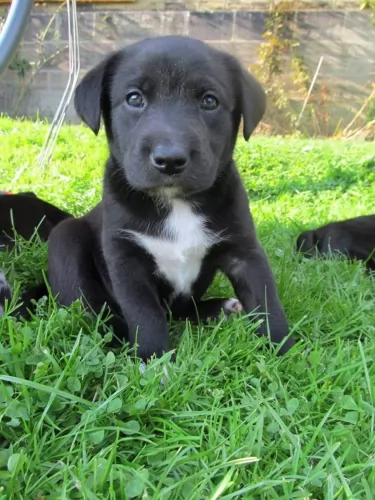 The Borador is a medium to large sized working dog which is well well-proportioned and muscular. His size can’t be carved in stone, but generally he will be in size from 40 – 57cm and weight in the region of 18 and 26 kg. His coat can vary significantly, leaning more towards one particular breed than the other. So the coat can be short and smooth or long and wavy or straight.
The Borador is a medium to large sized working dog which is well well-proportioned and muscular. His size can’t be carved in stone, but generally he will be in size from 40 – 57cm and weight in the region of 18 and 26 kg. His coat can vary significantly, leaning more towards one particular breed than the other. So the coat can be short and smooth or long and wavy or straight.
The Borador essentially has medium-sized ears which are floppy and the tail is medium-length. Sometimes the Borador will have the black and white coat of the Border Collie or he could have a brownish/beige colour from a golden Labrador.
He’s an Amicable Breed
When your energetic Borador is trained and socialized, he becomes a great family member and he gets on well with children and other pets.You’ll find that he often has the sweet, amicable temperament of the Labrador while having the sharp, alert intellect of the Border Collie.
Most Boradors are also good watchdogs and will bark at strangers, but because they are so amicable, from barking, they can quickly become a stranger’s friend.
The Yoranian is a toy breed, as are both its founding breeds. It checks in at only 7 pounds and stands only 6-10 inches tall. It can have medium or long fur in any combination of the parent’s colors including tan, black, blue or white. They have small ears that stand upright and erect, a small muzzle, medium tail and large round eyes. They can be long and slender like the Yorkshire Terrier or barrel shaped like the Pomeranian.
Characteristics
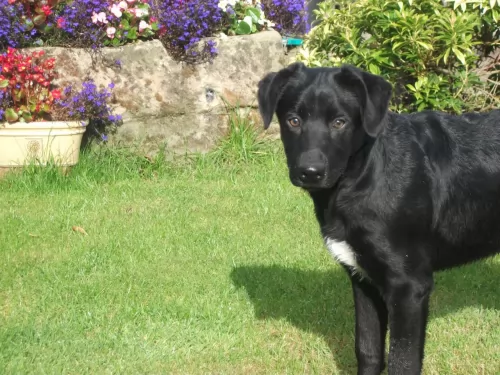 The Borador is an intelligent dog that can be trained. He is a sociable dog and is friendly to all members of his human family, willing to extend a paw of friendship to strangers as well.
The Borador is an intelligent dog that can be trained. He is a sociable dog and is friendly to all members of his human family, willing to extend a paw of friendship to strangers as well.
The Borador is also a friend of children and other pets. This combination of breeds is very energetic and you can’t just leave him for days on end in the backyard. He will need exercise and walks as well as ball games. When you become involved in his games, you tighten the bond between you and this is what this social, outgoing dog loves.
The Borador is going to make a wonderful pet because he is a mix of two very popular dog breeds. Give him all he deserves as a member of your family and you’ll have the perfect friend and companion for life.
1.Children friendliness absolutely but monitor so that the dog does not get hurt. They are fragile.
2.Special talents – high energy and lots of enthusiasm
3.Adaptability – very adaptable small apartments are great.
4.Learning ability very high gets bored easily
Health Problems
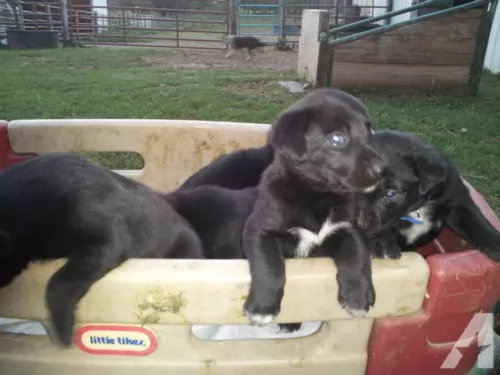 You won’t find serious health problems with your Boradors, as he is a robust breed. Nonetheless, there are some ailments that as a dog owner, you need to be aware of for your Borador.
You won’t find serious health problems with your Boradors, as he is a robust breed. Nonetheless, there are some ailments that as a dog owner, you need to be aware of for your Borador.
Skin ailments – you don’t want to see your dog scratching or licking continuously so you want to be aware of things like parasites and allergies. Skin diseases can be debilitating for a dog and can even require lifelong treatments. Yes, corticosteroids can help with itchy rashes, but the best move is to try and avoid skin ailments by ensuring a nutritious diet rich in minerals and vitamins and which includes some raw meat.
Always be checking your pet for skin problems such as ringworm, caused by a fungus and found on your dog and which appear as scaly patches and hair loss.
Hip Dysplasia – an inherited problem with the hip joints. No-one can predict when hip dysplasia settles in, but it can be as early as 4 months of age.Your dog shows signs of stiffness and may not be his energetic self. Some dog owners want to see certificates first that the parents of puppies have been hip-cleared before they buy a puppy.
The Yoranian has some medical challenges such as:
• A very fragile neck and back. They can be hurt easily.
• Low Blood Sugar must be monitored.
• Eye irritations and dry eyes without enough tear production.
• Dental issues with decay and loss of teeth.
• Patellar Luxation of slipped kneecaps causing lameness.
• Retinal Atrophy can lead to blindness.
Caring The Pet
Grooming
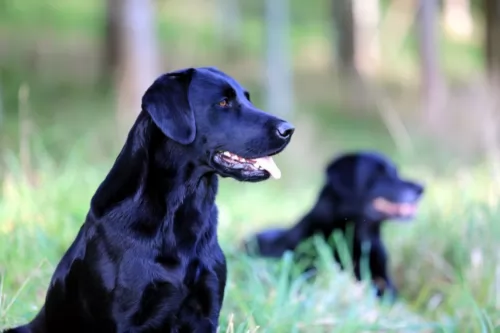 The Borador may have inherited the moderate shedder characteristics of the Border Collie or the more intense shedding of the Labrador Retriever. He will require a good brush at least twice a week to ensure you remove loose hairs so as to keep his coat shiny and healthy. Check your dogs ears too for yeast infections.
The Borador may have inherited the moderate shedder characteristics of the Border Collie or the more intense shedding of the Labrador Retriever. He will require a good brush at least twice a week to ensure you remove loose hairs so as to keep his coat shiny and healthy. Check your dogs ears too for yeast infections.
Feeding
Puppies and young Boradors are full of energy and they will require a diet that has an excellent protein content. If you’re unsure about how to feed your Borador, speak to your vet as some dogs need more calories depending on their level of activity.
Certainly if your dog has allergies, you may have to look for a special diet but otherwise a top brand commercial dog food can be a good choice if you include some home prepared food such as rice, vegetables and meat. It is important to give your dog some raw meat every now and then as well. Always have a bowl of cool, fresh water available for your pet 24/7.
1 Feeding the puppy don’t overfeed and feed small pieces of toy dog food. 3-4 x per day ¼ cup daily
2.Feeding the adult don’t overfeed/ high quality adult toy dog food. Make sure pieces are small. ¼ to ½ cup daily
3.Points for Good Health – lots of energy and enthusiasm
4. Games and Exercises high energy and enthusiasm at least 2 walks a day.
loves to play inside
Comparison with other breeds
- Borador vs English Bulldog - Breed Comparison
- Borador vs German Shepherd - Breed Comparison
- Borador vs Golden Retriever - Breed Comparison
- Borador vs Labrador Retriever - Breed Comparison
- Borador vs West Highland White Terrier - Breed Comparison
- Borador vs French Bulldog - Breed Comparison
- Borador vs Beagle - Breed Comparison
- Borador vs Yorkshire Terrier - Breed Comparison
- Borador vs Poodle - Breed Comparison
- Borador vs Rottweiler - Breed Comparison
- Borador vs Boxer - Breed Comparison
- Borador vs English Pointer - Breed Comparison
- Borador vs Siberian Husky - Breed Comparison
- Borador vs Doberman Pinscher - Breed Comparison
- Borador vs American Bully - Breed Comparison
- Borador vs Abruzzenhund - Breed Comparison
- Borador vs Affenpinscher - Breed Comparison
- Borador vs Afghan Hound - Breed Comparison
- Borador vs Aidi - Breed Comparison
- Borador vs Airedale Terrier - Breed Comparison
- Borador vs Akbash Dog - Breed Comparison
- Borador vs Akita - Breed Comparison
- Borador vs Africanis - Breed Comparison
- Borador vs Askal - Breed Comparison
- Borador vs Atlas Terrier - Breed Comparison
- Yoranian vs English Bulldog - Breed Comparison
- Yoranian vs German Shepherd - Breed Comparison
- Yoranian vs Golden Retriever - Breed Comparison
- Yoranian vs Labrador Retriever - Breed Comparison
- Yoranian vs West Highland White Terrier - Breed Comparison
- Yoranian vs French Bulldog - Breed Comparison
- Yoranian vs Beagle - Breed Comparison
- Yoranian vs Yorkshire Terrier - Breed Comparison
- Yoranian vs Poodle - Breed Comparison
- Yoranian vs Rottweiler - Breed Comparison
- Yoranian vs Boxer - Breed Comparison
- Yoranian vs English Pointer - Breed Comparison
- Yoranian vs Siberian Husky - Breed Comparison
- Yoranian vs Doberman Pinscher - Breed Comparison
- Yoranian vs American Bully - Breed Comparison
- Yoranian vs Abruzzenhund - Breed Comparison
- Yoranian vs Affenpinscher - Breed Comparison
- Yoranian vs Afghan Hound - Breed Comparison
- Yoranian vs Aidi - Breed Comparison
- Yoranian vs Airedale Terrier - Breed Comparison
- Yoranian vs Akbash Dog - Breed Comparison
- Yoranian vs Akita - Breed Comparison
- Yoranian vs Africanis - Breed Comparison
- Yoranian vs Askal - Breed Comparison
- Yoranian vs Atlas Terrier - Breed Comparison
 Petzlover
Petzlover Both Borador and Yoranian are originated from United States. Borador may grow 27 cm / 11 inches higher than Yoranian. Borador may weigh 23 kg / 51 pounds more than Yoranian. Both Borador and Yoranian has almost same life span. Both Borador and Yoranian has almost same litter size. Borador requires Moderate Maintenance. But Yoranian requires Low Maintenance
Both Borador and Yoranian are originated from United States. Borador may grow 27 cm / 11 inches higher than Yoranian. Borador may weigh 23 kg / 51 pounds more than Yoranian. Both Borador and Yoranian has almost same life span. Both Borador and Yoranian has almost same litter size. Borador requires Moderate Maintenance. But Yoranian requires Low Maintenance Hybrid breeds have become popular in the last decade or so. The Borador, hailing from Northern America, is one of these popular crossbreeds between two very popular dog breeds - the Border Collie and the Labrador Retriever. Between the two dog breeds, you get extraordinary intelligence, energy and a wonderful temperament.
Hybrid breeds have become popular in the last decade or so. The Borador, hailing from Northern America, is one of these popular crossbreeds between two very popular dog breeds - the Border Collie and the Labrador Retriever. Between the two dog breeds, you get extraordinary intelligence, energy and a wonderful temperament. The Borador is a medium to large sized working dog which is well well-proportioned and muscular. His size can’t be carved in stone, but generally he will be in size from 40 – 57cm and weight in the region of 18 and 26 kg. His coat can vary significantly, leaning more towards one particular breed than the other. So the coat can be short and smooth or long and wavy or straight.
The Borador is a medium to large sized working dog which is well well-proportioned and muscular. His size can’t be carved in stone, but generally he will be in size from 40 – 57cm and weight in the region of 18 and 26 kg. His coat can vary significantly, leaning more towards one particular breed than the other. So the coat can be short and smooth or long and wavy or straight.  The Borador is an intelligent dog that can be trained. He is a sociable dog and is friendly to all members of his human family, willing to extend a paw of friendship to strangers as well.
The Borador is an intelligent dog that can be trained. He is a sociable dog and is friendly to all members of his human family, willing to extend a paw of friendship to strangers as well. You won’t find serious health problems with your Boradors, as he is a robust breed. Nonetheless, there are some ailments that as a dog owner, you need to be aware of for your Borador.
You won’t find serious health problems with your Boradors, as he is a robust breed. Nonetheless, there are some ailments that as a dog owner, you need to be aware of for your Borador. The Borador may have inherited the moderate shedder characteristics of the Border Collie or the more intense shedding of the Labrador Retriever. He will require a good brush at least twice a week to ensure you remove loose hairs so as to keep his coat shiny and healthy. Check your dogs ears too for yeast infections.
The Borador may have inherited the moderate shedder characteristics of the Border Collie or the more intense shedding of the Labrador Retriever. He will require a good brush at least twice a week to ensure you remove loose hairs so as to keep his coat shiny and healthy. Check your dogs ears too for yeast infections.